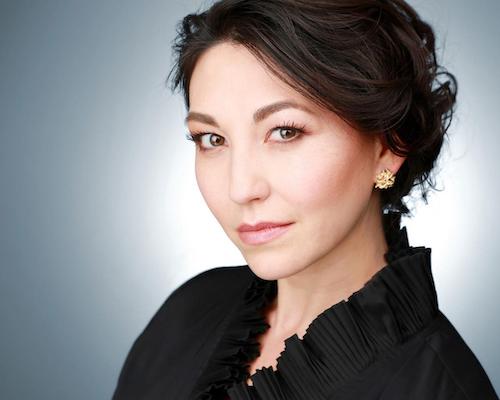Soprano illumes music from the 1918 pandemic in Epiphany program

In pre-pandemic times, the Tuesday lunchtime concert series at the Church of the Epiphany was mostly for people who work downtown or are free during the day. Coronavirus forced the series online, and now anyone can stream these free concerts, generally an hour or less, at their own convenience. The latest installment, a charming recital by soprano Laura Choi Stuart, appeared this Tuesday.
Choi Stuart and her partner at the keyboard, George Fergus, performed a 45-minute program consisting entirely of music by American composers. All of these songs were composed in the years around the last time that the United States faced a pandemic, the 1918 outbreak of Spanish flu. That coincidence did not provide any further thematic link, but the idea of music as a way to weather a global health crisis was inspiring.
The most familiar songs were by Charles Ives, a sign of the recital’s eclectic nature. Choi Stuart captured the cute, homespun qualities in “The Greatest Man,” sung by a boy filled with admiration for his father. The soprano’s airy tone was better suited to “Two Little Flowers,” serene in phrasing and supported with silky ease by Fergus at the piano. Choi Stuart’s English diction was impeccably clear, giving no need to consult the texts.
Singers are rediscovering the art songs of Henry Thacker Burleigh, perhaps better known for his arrangements of spirituals. Choi Stuart produced a tone of greater heft for the sentimental “Somewhere in the Great Beyond,” in a performance that was gracious and prayerful. At the conclusion of “Under the Blazing Star,” she lightened the final high A, marked pianissimo, until it almost vanished.
Choi Stuart’s French was also admirably clean, heard in John Alden Carpenter’s haunting “Berceuse de Guerre.” The poem, written by Émile Cammaerts in the middle of World War I, is sung by a young mother also worried for her man gone to fight. Fergus’s rumbling octaves, signaling the fog of war in the distance, contrasted with the silky legato of the soprano’s lilting lullaby.
“Strong as Death” by Frederick Ayres highlighted the stillness of sound produced by Choi Stuart’s controlled voice, as it opened on a contained single-note recitation. The bleak bass notes from Fergus challenged Choi Stuart, but not to the breaking point. A second song by the same composer, “Triumph,” made a pleasing contrast, with an exultant outburst from Choi Stuart fueling its climax.
Two sets of songs composed by women proved among the best discoveries of the recital. “Shy One,” composed by British-American composer Rebecca Clarke to a poem by William Butler Yeats, was pretty, if somewhat sentimental. Her song “The Cloths of Heaven,” also set to a succinct poem by Yeats, featured entrancing melodic twists and more chromatic harmony, woven into a tapestry of mysterious sound.
Clarke was outshone by pioneering American composer Marion Bauer, whose slow, stately “Night in the Woods” put Choi Stuart’s extraordinary breath support on display. The style of “Epitaph of a Butterfly” was in a similar vein, inspiring liquid, effortless tone from Choi Stuart, soaring on the long, almost motionless melodic line.
The program concluded with the Three Songs of Fiona MacLeod by Charles Tomlinson Griffes, on poems by a Scottish woman who turned out to be writer William Sharp. If Choi Stuart’s tone was slightly stretched at the top of her range, the second song, “Thy Dark Eyes to Mine,” played more to the transparent side of her voice.
In the third song, “The Rose of the Night,” the Gothic ghost story setting is set with enigmatic harmonic wanderings. Choi Stuart’s variety of tone qualities, especially an otherworldly hush in the quietest passages, matched beautifully to Fergus’s misty playing. Music can be a consolation, even in the most trying of times.
Church of the Epiphany features pianist Chengcheng Yao, winner of The Steinway International Piano Competition, playing Schumann’s Davidsbündlertänze and Rorem’s Three Barcarolles 12:10 p.m. April 13. epiphanydc.org



